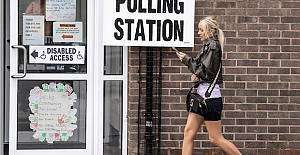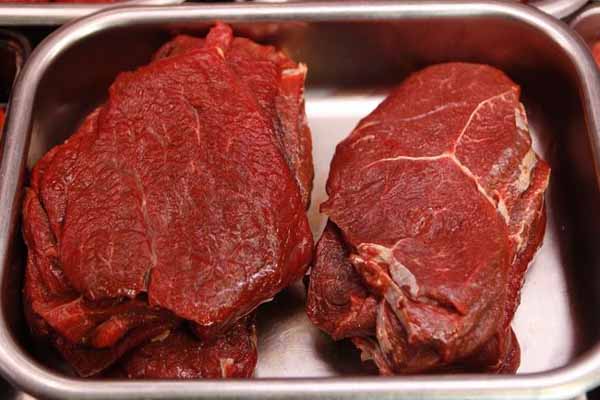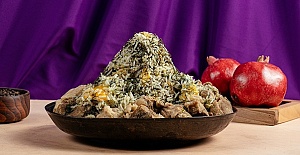Tests on beef products in Italy have found that one in five contain more than 1 percent horse meat, the Italian Health Ministry said on Monday. Italy launched an inspection of the sector in response to the scandal of horse meat in products labelled as beef that has spread across Europe since January, prompting product withdrawals and worrying consumers. Italian police inspected 454 samples of products advertised as beef without any mention of horse meat, and found that 93 tested positive for horse meat traces above 1 percent, which should have been declared, the ministry said. The products it tested were of both national and foreign origin, the ministry said. Italy said it had sent the findings to the European Commission, which is due to publish EU-wide data on Tuesday.
Farmers lobby Coldiretti said the results had unveiled a "global scam" and "a scandal without precedent".
It said the inspection highlighted "the widespread movement of meat that goes from one end of Europe to the next through opaque exchanges that spawns fraud and deception to the detriment of businesses and consumers".
The tests found no traces of the horse pain-killing drug phenylbutazone, which has been found during inspections elsewhere in Europe. The drug can be harmful to humans in very high concentrations and is banned from entering the human food chain.
Horse DNA found in France
France also found more cases of illegal horsemeat in beef products than any other EU country, early results of DNA tests ordered in the wake of the scandal showed, with more than 1 in every 8 samples testing positive.
The European Commission is due to announce the results of the tests later on Tuesday, but EU sources said a progress report from the EU's executive dated April 9 showed that of 353 tests carried out in France, 47 tested positive for horse DNA.
Europe's horsemeat scandal has damaged confidence in parts of the continent's food industry, hitting sales of processed ready-meals and boosting demand for organic produce.
The progress report only included complete data for 11 EU countries. Greece had the second-highest level of positive results with 288 tests yielding 36 positive results - a rate of 12.5 percent. Germany found horse DNA in 29 samples out of 867.
In Britain, where horsemeat has already been found in burgers and other products sold by retailers including Tesco , 150 official tests carried out as part of the EU-funded programme returned no positive results for horsemeat.
But one senior EU official said Britain had recorded the most positive results for the potentially harmful veterinary drug phenylbutazone - known as bute - as part of a second set of EU-wide tests on horsemeat destined for human consumption.
"The bute is now really concentrated in the UK, but mainly because the UK has tested every horse slaughtered since February, so they have done a huge number of tests - more than 800," said the source, who spoke on condition of anonymity.



 Advice for Enfield residents ahead of the General Election
Advice for Enfield residents ahead of the General Election Sunak promises tax cuts, economic stability, Conservative Party election manifesto
Sunak promises tax cuts, economic stability, Conservative Party election manifesto Ertan Karpazli, an independent MP candidate for the Enfield North constituency
Ertan Karpazli, an independent MP candidate for the Enfield North constituency Rishi Sunak announces a general election in a statement outside Downing Street
Rishi Sunak announces a general election in a statement outside Downing Street Residents of Spanish island of Mallorca launch initiative to thank tourists amid protests over mass tourism
Residents of Spanish island of Mallorca launch initiative to thank tourists amid protests over mass tourism Srebrenica Remembered, Lessons for Justice and Peace! YEE London held a reflective event
Srebrenica Remembered, Lessons for Justice and Peace! YEE London held a reflective event British Premier Keir Starmer to reset UK-EU relations with high-profile meetings
British Premier Keir Starmer to reset UK-EU relations with high-profile meetings Voters head to polls for UK general election
Voters head to polls for UK general election The Swiss official will take charge of the match between Real Madrid and Atalanta in Warsaw
The Swiss official will take charge of the match between Real Madrid and Atalanta in Warsaw Applications are now open for Walking and Cycling Grants London until 9 September 2024
Applications are now open for Walking and Cycling Grants London until 9 September 2024  Two Circles also appointed as exclusive media sales agency for UEFA Women’s Champions League
Two Circles also appointed as exclusive media sales agency for UEFA Women’s Champions League  England manager Gareth Southgate has resigned two days after defeat by Spain
England manager Gareth Southgate has resigned two days after defeat by Spain Joyce and Snell's planning application gets stamp of approval
Joyce and Snell's planning application gets stamp of approval The amount of bounce back loans fully repaid is just %13
The amount of bounce back loans fully repaid is just %13 Petrol prices higher than they should be, says RAC
Petrol prices higher than they should be, says RAC UEFA and Mastercard renew UEFA Champions League partnership
UEFA and Mastercard renew UEFA Champions League partnership




















